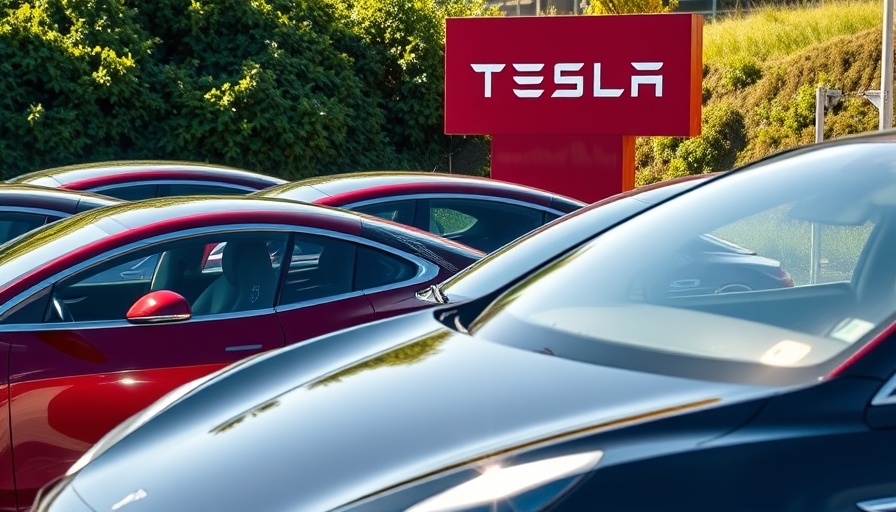
The Plummeting Profits of Tesla: A Closer Look
Tesla, the pioneer in electric vehicles (EVs), has recently reported alarming financial results, shedding light on deeper issues within the company. The electric automaker announced a staggering 71% drop in net income, significantly impacted by weak sales and a notable backlash against its controversial CEO, Elon Musk. In the first quarter of this fiscal year, Tesla's net income plummeted to $409 million from the previous year's figures, as sales figures fell to their lowest in over two years.
Weak Sales Contributing to Record Losses
During a time when the EV market is booming, Tesla's deliveries dipped to around 337,000 vehicles, which raised concerns among investors and analysts. Such a decline not only signifies a challenging market environment, but it also indicates that Tesla's expansive growth may be stalling. Interestingly, the company managed to post some profit by relying heavily on selling $595 million in zero-emissions tax credits, a move that has sparked debates about the sustainability of its business model.
Elon Musk's Impact: A Double-Edged Sword?
Elon Musk’s personal politics and leadership style seem to be influencing Tesla’s public perception. With his involvement in the Trump administration and outspoken political stances, a segment of consumers is increasingly distancing themselves from the Tesla brand. The criticism surrounding Musk has raised questions about the ability of the company to maintain its market position amid growing competition in the EV space.
Responding to Market Pressures: Production Changes and Strategic Moves
Despite the bleak financial outlook, there is a flicker of hope for Tesla in their upcoming plans. The company is gearing up to produce a new line of affordable EVs by June. Utilizing an existing manufacturing platform allows for accelerated production timelines, aiming to regain momentum against supportive competitors entering the market. Tesla's ability to deliver these models may counterbalance declining interest in its current lineup.
Looking Ahead: The Challenges and Opportunities
Potential roadblocks such as tariffs and shifting political sentiments are front and center in Tesla's strategic outlook. The company has indicated that geopolitical tensions could harm demand, particularly in the wake of trade disputes with China. Nonetheless, there's optimism as Musk hints at the deployment of Tesla’s Robotaxi initiative, with expectations for an initial launch in Austin and potential expansions throughout 2025.
Insights for Business Leaders: What This Means Moving Forward
For CEOs and marketing managers, Tesla's current journey serves as a valuable case study in brand resilience and consumer perception. In today’s volatile market, the balance between product innovation and public relations is delicate; managing this balance effectively can differentiate a leading brand from its competitors. Keeping an eye on both the technological advancements and the societal implications of leadership styles will be crucial for sustained growth in any industry.
Your Turn: What Can You Learn from Tesla's Challenges?
The story of Tesla suggests that even the most successful innovators are not immune to market challenges. As business professionals, it’s important to adopt a mindset that embraces continuous adaptation and open dialogue around company leadership and its cultural ramifications. By learning from these dynamics, companies can better navigate their strategies in an evolving marketplace.
In conclusion, despite the current challenges facing Tesla, the company’s push for affordable EVs and innovation towards autonomous vehicle technologies presents significant learning opportunities for business leaders across sectors. Analyzing Tesla's perceived missteps and successes will empower decision-makers to refine approaches that align with modern consumer sentiments.
 Add Row
Add Row  Add
Add 




Write A Comment